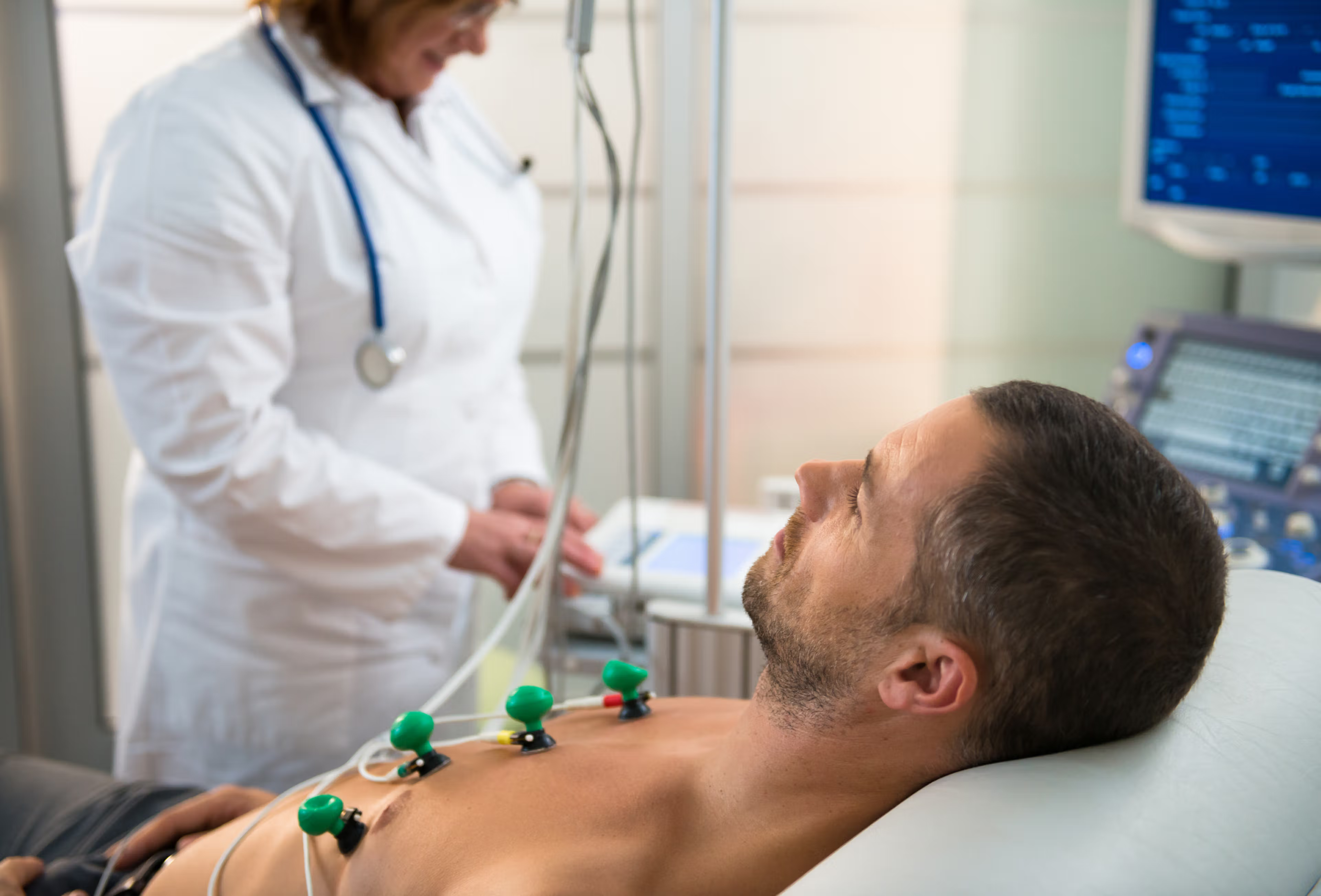ECG at Sun Diagnostics
Electrocardiogram (ECG) is a non-invasive test that records the electrical activity of the heart to detect heart problems and monitor heart health.


Electrocardiogram (ECG) is a non-invasive test that records the electrical activity of the heart to detect heart problems and monitor heart health.

An Electrocardiogram (ECG) is a simple, painless test that measures the electrical activity of your heart. It helps diagnose arrhythmias, heart attacks, and other cardiac conditions, providing essential information for treatment planning.
During the test, electrodes are placed on your chest, arms, and legs to record the heart's electrical signals. The procedure is quick, usually taking only a few minutes, and is safe for all age groups.
ECG is commonly used to evaluate symptoms such as chest pain, palpitations, dizziness, and shortness of breath. It is also used to monitor heart health in patients with existing heart conditions or those undergoing treatment.
To ensure accurate ECG results, please consider the following tips: